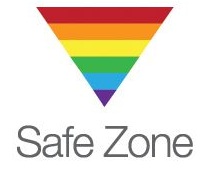Social Media and Teen Mental Health, Is There a Connection?
/Mental health issues are seemingly more prevalent among young Americans, and there are tons of teens who struggle with major depressive disorder, generalized anxiety disorder, and social anxiety disorder. I think that the pressures on kids and teens are different than even a decade ago, and while social media plays a role in that, there are other factors too.
No one can deny that social media has had a tremendous impact on our society, and has been particularly impactful on the lives of teenagers and young adults. There's the feeling of judgment based off of how many followers you have, and unfortunately, there’s the constant personal comparison to Instagram celebrities and YouTubers, which sets up unrealistic standards. Social media opens up the possibility for anyone in the world to pass judgment on your photo, video, or thought, and negative feedback online can significantly impact self-esteem. Unfortunately, the high and thrill from getting likes on your photo is also balanced with the deep sadness and feeling of rejection when the post does not get any likes.
But social media, once again, is just one part of the equation. Schools that were once competitive in the early 2000s are now almost impossible to get into without a near perfect GPA, tons of extracurricular activities, and a long list of leadership roles. High achievers struggle with intense perfectionism, and the idea of failure or under-performing sends them into a spiral. They sometimes even look at their anxiety itself as a failure, and may not speak up about how they're struggling until they can't hide behind the mask any longer. It's a recipe for feeling isolated, disconnected, and stressed.
While there are unique challenges this generation is coping with, I also think part of what we're seeing is shifts in the way that we view and address mental health as a society. Even in the early 2000s, mental health was not discussed nearly as openly as it is today, and mental health was still a bit of a taboo subject. This generation is educated about depression, anxiety, and other mental health disorders because of the dialogues we are having as a nation, and because schools are providing more front line education regarding the signs of suicide and ways to identify if you are struggling emotionally.
Also, this generation, for the most part, is much more open to the idea of therapy and getting support at a young age. Many of my clients openly discuss being in therapy with their peers, and will recommend that their friends get support if they're struggling too, which a positive shift in the way we approach mental health issues. This generation is changing the mental health landscape and is no longer hiding in the shadows of shame like previous generations did.
Bottom line: Statistically, research shows that yes, there is an increase in mood disorders and anxiety disorders among young Americans due to social and environmental factors. But the statistics could also reflect more frequent reporting of mental health issues and increased treatment seeking behaviors in the last decade compared to previous decades.


